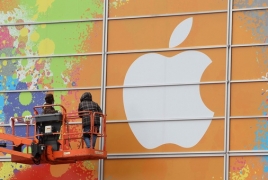
With its share of the smartphone market slipping, Apple plans to launch a lower-cost iPhone next spring to win customers in emerging markets and retake ground in China lost to Huawei Technologies and other rivals, sources said, according to Nikkei.
The new model would be Apple's first low-cost smartphone since the launch of the iPhone SE in 2016, which started at $399. Though the name and price of the new model hasn't been decided, it is viewed as the latest generation of the iPhone SE.
The decision to revive the lower cost model comes amid a rough patch for the iPhone. Apple reported its first-ever decline in iPhone shipments for last year, and this summer it lost the title of No. 2 smartphone maker to Huawei. The U.S. company also has suffered two straight quarters of shipment and market share drops this year, according to IDC data. The global smartphone industry overall also faces its third consecutive annual decline in 2019, according to IDC projections.
Blame for the iPhone slump lies in part with the intensifying Washington-Beijing trade war that has weighed on consumer sentiment in China, the Cupertino, Calif., company’s third-largest market.
But blame also rests on Apple's pricing strategy, which saw the iPhone XS Max retail for as much as $1,099 when it was launched. Tim Cook, Apple's chief executive, acknowledged in January that "price is a factor" behind weaker sales in emerging markets.
To reenergize sales, Apple slashed prices for its flagship iPhones and launched trade-in programs, which accounted for nearly half of its revenue in the first half of the year. Despite these incentives, Apple still lost its position as the world's second largest smartphone maker to fast-rising Huawei during the period.
The new, cheaper iPhone could boost sales for Apple next spring, when the life-cycle of new flagship iPhones -- scheduled to be unveiled Sept. 10 -- would naturally begin to slow. The original iPhone SE sold about 30 million units in 2016 and another 10 million between 2017 and 2018, according to Yuanta Investment Consulting.

